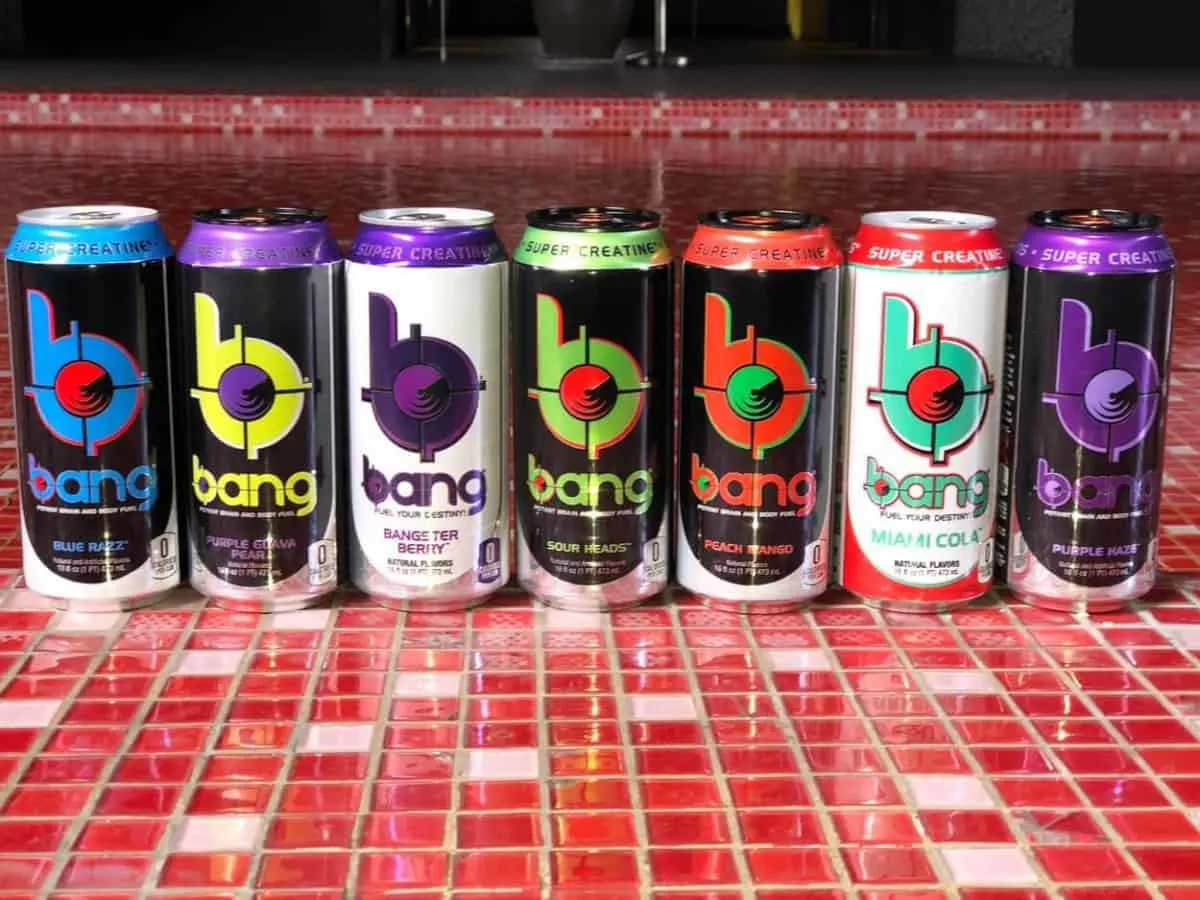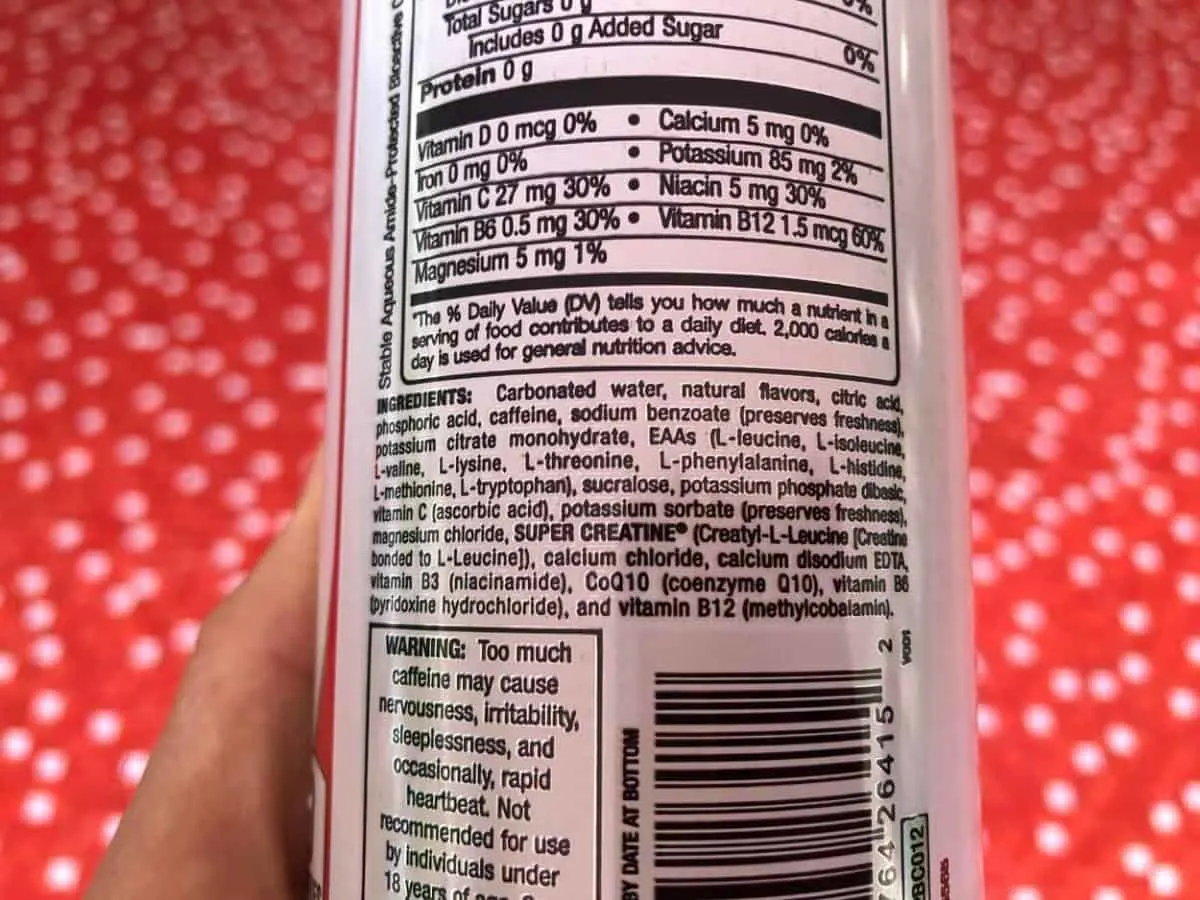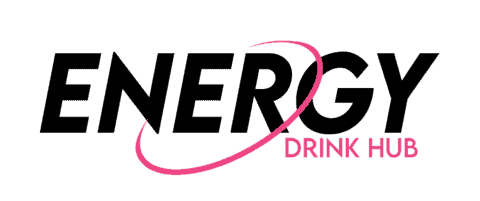
The caffeine content in Bang Energy Drink may be concerning. But other than that, Bang isn’t necessarily bad for you. Especially because it has zero fat, sugar, and calories.
There are many anecdotes about the harmful effects of energy drinks on the body. Others say they induce liver damage, while some claim they increase the risk of diabetes.
Although you might come across these complaints, not many of these can present evidence to back their claim. Some are half-truths, while others are outright false.
So, if you’re looking for a credible source that can help you fact-check these claims, you’ve come to the right place.
Based on hard facts and scientific research, you’ll know the answer behind, “How bad is Bang Energy Drink?“
Let’s expound on this a little more in the succeeding sections.
Page Contents
Bang Energy Drink Side Effects
Bang Energy Drink contains 300 mg of caffeine per regular 16 fl. oz. can. It is considered one of the strongest energy drinks available in the market today.
The main worry in Bang is that it is a strong caffeinated beverage.
The recommended range of daily caffeine intake is 400 mg per day for healthy adults according to health experts.
As you can see, Bang is still within the suggested range.
However, it is already bordering on the limit, making it dangerous for children and other people with low caffeine tolerance to consume.
As a matter of fact, the Food and Drug Administration advises children and adolescents strictly not to consume energy drinks or other highly caffeinated beverages because their body still has a low tolerance for the stimulant.
To further give you an idea of the caffeine level of energy drinks, here is a short list of some of the popular brands.
| Energy Drink | Caffeine Level |
| Bang Energy Drink | 300 mg |
| NOS Energy Drink | 260 mg |
| C4 Energy Drink | 200 mg |
| Monster Energy Drink | 160 mg |
| Rockstar Energy Drink | 160 mg |
| G Fuel Powdered Energy Drink | 150 mg |
| Red Bull Energy Drink | 80 mg |
| Amp Energy Drink | 75 mg |
I am emphasizing the caffeine content because everyone should take caffeine levels seriously.
It’s important to note that every person reacts differently to different amounts of caffeine; your tolerance depends on age, weight, metabolism, and existing health conditions.
According to studies, excessive caffeine intake may result in the following adverse effects:
- anxiety
- insomnia
- digestive problems
- muscle breakdown
- addiction
- rapid heart rate
- agitation
Aside from this, you should also note that caffeine is directly absorbed by the body from the gut to the bloodstream.
So any of the side effects I mentioned above can happen immediately and last for a prolonged period of time from approximately 3 to 10 hours.
Best to be careful and follow the warning sign indicated on the packaging of Bang.

Based on the label Bang Energy Drink is not advisable to:
- People under 18 years old
- Pregnant women
- People who are caffeine-sensitive
- Breastfeeding women
How Bad is Bang Energy Drink for You?
Bang poses some risk if you have low caffeine tolerance and if you overconsume. It may not have any adverse effects if consumed in moderation. Plus, you can even benefit from its featured ingredient, creatine.
As we discussed extensively a while ago, Bang is a hardcore energy drink with a massive amount of caffeine. This is the main reason why Bang might not be a suitable drink for you.
If you’re under 18 or suffering from underlying health problems, do not try Bang to avoid side effects from its caffeine content.
Other than its high caffeine content, Bang is actually a good energy drink choice.
For starters, it contains zero-calorie sugar so it’s actually a better choice than sodas and other carbonated beverages with sugars in them.
Bang uses sucralose and acesulfame potassium which are both artificial sweeteners without calorific value.
In simple terms, you get to enjoy the sweet flavor of the energy drink without the dangers of excess added sugar like:
- increased risk of heart disease
- increased risk of cancer
- accelerate skin aging process
- increased cellular aging
- accelerate cognitive decline
- increased kidney disease
I said a while ago that Bang is a good choice of beverage because you can actually benefit from the supplements in its formulation.
One great benefit of Bang comes from creatine.
Creatine

Bang Energy Drinks contain Super Creatine bonded to L-leucine, which is an amino acid that improves mental focus.
Super Creatine is a marketing term for creatine bonded with L-leucine. Many people think that Super Creatine does not even function and work like creatine. It’s nothing but marketing flufff created by Bang to have consumers more drawn to the drink.
I know this claim sounds bold but the thing is, I haven’t seen anything specific about Super Creatine and its benefits.
Creatine is a supplement that boosts muscle strength and development.
For me, creatine is the defining ingredient in Bang Energy Drinks. It is safe and easy to use, as well as good for the body.
Aside from muscular benefits, creatine is also found to provide other health benefits such as:
- improved energy levels
- help fight neurological diseases (epilepsy, brain or spinal cord injuries)
- fights fatigue
- strengthens muscle
- help develop muscle mass
While we all agree that creatine is a very powerful supplement, creatine is not present in other versions of Bang sold abroad.
For instance, Bang Energy Drinks sold in the European Union do not contain creatine because certain regulations do not allow creatine to be used in food or other beverages.
So, if you’re overseas and happen to look at the back of the packaging of a Bang Energy Drink, don’t be surprised if you can’t find “Super Creatine” on it.
Now, let’s talk about the effects of energy drinks to your heart.
Are Bang Energy Drinks Bad For Your Heart?
Bang Energy Drinks are not bad for your heart, if consumed in moderation.
As you now know, the caffeine level in Bang is very high, which is why it can lead to rapid heart rate and fatigue when abused.
Caffeine is a stimulant commonly found in tea and coffee. When ingested in large amounts, however, it can lead to nervousness and jitters.
Therefore, Bang Energy Drinks aren’t bad for the heart if you consume them in healthy intervals.
In fact, a study found out that people who consume 32 ounces of energy drinks in an hour or 2 regular 16 fl. oz. per day showed abnormal electrical activity in their heart and high blood pressure.
I think too much stimulants in the body can cause a strain on your heart. That being said, you should definitely consume energy drinks responsibly.
Excessive energy drink intake could damage your organs, so make sure to consume just one can of Bang daily. At the same time, it’s paramount to regularly exercise and maintain a well-balanced diet to stay healthy.
Are bang energy drinks bad for your brain?
Bang Energy drinks can be bad for the brain. And while this may be partly true, drinking Bang Energy just once won’t cause any permanent brain damage, the content of the drink does cause a risk. No regular consumption may induce different side effects.
Consumption of an energy drink like Bang Energy alone will not result in permanent brain damage. Quite a few other considerations also exist. However, the high caffeine content of these drinks can alter a person’s behavior, leading to many teen injuries.
Is Bang Energy addictive?
Bang Energy drink can be addictive. Physically speaking, regular consumption will make the body believe that it will not be able to function without a single can. Additionally, this will also trick the person into consuming it in a daily basis, causing negative effects.
When viewed from a psychological standpoint, energy drinks can have the same addictive potential as other substances. Those who believe they would be unable to function normally without their energy drinks are at risk of developing a dependency on them.
How Many Bang Energy Drinks Can You Drink in a Day?
Generally, it is safe to consume only one can of Bang Energy Drink per day to stay within the suggested caffeine limit.
Just to recap, Bang contains 300 mg of caffeine. This is considered very high as explained in the previous sections.
Based on health experts, it is only safe to consume no more than 400 mg of caffeine per day for healthy adults.
This means that if you were to consume two cans of Bang in a day, you would be ingesting more than the suggested daily limit.
Additionally, the more highly-caffeinated beverages you drink, the more you increase your chances of experiencing the symptoms of caffeine overdose.
If you want to learn more about the effects of Bang Energy Drink on the body, here’s an informative clip for you.
Are bangs healthier than other energy drinks?
The perception of whether Bang energy drinks are healthier than other energy drinks can vary depending on individual perspectives and preferences. Bang energy drinks are marketed as containing zero calories, zero sugar, and a variety of added ingredients such as amino acids, vitamins, and herbal extracts.
While the absence of calories and sugar can be appealing to individuals looking for low-calorie or sugar-free options, it’s important to consider the overall nutritional profile and potential effects of the added ingredients. Bang energy drinks, like other energy drinks, still contain high levels of caffeine and other stimulants.
Can 13-year-olds drink bangs?
13-year-olds should avoid consuming energy drinks like Bang. Energy drinks, including Bang, often contain high levels of caffeine and other stimulants, which can have potential health risks for individuals, especially younger ones, due to their developing bodies and lower tolerance to caffeine.
It is generally recommended that children and adolescents limit their caffeine intake or avoid energy drinks altogether. The American Academy of Pediatrics advises against the consumption of energy drinks by children and adolescents due to potential adverse effects on health, including negative effects on growth and development.
What’s the Healthiest Energy Drink?
The healthiest kinds of energy drinks are those with zero calories, sugars, and a sensible amount of caffeine.
According to a ranking made by health experts, here are the healthiest energy drinks on the market:
- Sound Sparkling Organic Yerba Maté with Citrus and Hibiscus: Calories: 0, Caffeine: 70 mg, Sugar: 0
- MatchaBar Hustle Matcha Energy (Sparkling Mint) Calories: 5, Caffeine: 120 mg Sugar: 0
- Vital Proteins Collagen Energy Shots: Calories: 4 Caffeine: 90 mg
- Mati Unsweetened Sparkling Organic Energy Drink (Unsweetened): Calories: 0, Caffeine: 115 mg
- Toro Matcha Sparkling Ginger: Calories: 10 Caffeine: 60 mg
Unlike mainstream brands that are available almost everywhere, these are hard to find. Most of these brands aren’t sold in convenience stores, but you can try looking them up online on Amazon and eBay.
Is Bang Better for You Than Monster?
The short answer is, it depends.
For general consumers, Monster Energy Drink is better for you because it has lower caffeine levels while Bang contains a lot of it.
There is a lower risk of caffeine overdose with Monster.
However, if you want zero calories and zero sugars in your energy drink, I think Bang Energy Drink would be more suitable for you. I can also recommend Bang to people who want energy drinks enriched with different vitamins and minerals.
It’s hard to say one energy drink is better than the other because I really believe it depends on the needs of the consumer.
Both energy drinks have their own advantages and unique tastes.
Summary
Bang Energy Drink is not harmful to your body because all of its ingredients are safe to use and within the suggested limit.
However, Bang has high caffeine content, making its consumers more prone to caffeine overdose. This is something you’d want to watch out for when drinking Bang.
One way to prevent this is to stick to one can per day to maintain healthy caffeine levels in the body. Avoid caffeine overdose by consuming energy drinks, in general, responsibly.
Also, make sure to read the warning signs in the packaging and heed them. When consumed in moderation, Bang Energy Drink shouldn’t be bad for you.
Now, what are you waiting for? Go get a Bang Energy Drink now!
Don’t buy Bang without first checking out my Bang buying guide to ensure you don’t pay too much and get the best deal possible.
